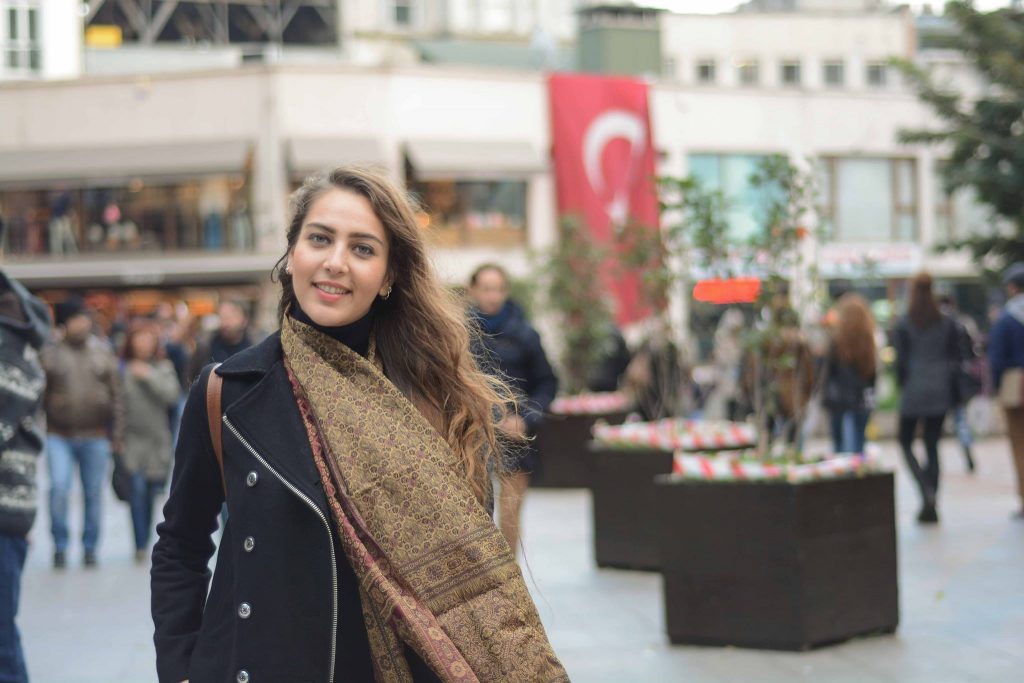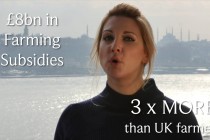On 21 September 2017, Halla Barakat, a 23-year-old American journalist, and her 62-year-old mother Orouba Barakat, a Syrian national, were murdered in their own home in Istanbul. Their throats had been cut and their bodies covered with blankets.
Nine days later, Turkish police arrested a suspect – Ahmed Barakat – in Bursa and he was transferred to Istanbul for questioning.
Footage from security cameras placed Ahmed Barakat, a relative of the two women, close to the apartment of Halla and Orouba in Üsküdar at the time of the murders.
When initially questioned by police, Ahmed confessed to killing the two women and he was charged with “intentional killing” under Article 82 of the Turkish Criminal Code in December 2017. But by the time the case went to trial the following year, Ahmed had changed his plea to ‘not guilty’. Yet the court found him guilty as charged and he was sentenced to life imprisonment on 13 March 2018.
The investigation and outcome of the court case, which framed the murders as the result of a family dispute, did not sit well with those who knew Halla and her mother well.
The pair were Syrian human rights defenders and outspoken critics of Daesh and Syrian President Bashar al-Assad.
At the time of her death, Halla was working for news outlets in Turkey covering the civil war in Syria. She had also briefly worked for ABC News.
Her mother was a well-known journalist who had turned to activism, playing a leading role in the Istanbul-based opposition to the Assad regime.
It’s likely Halla and Orouba’s media work and activism threatened the interests of powerful people who would prefer they were permanently silenced.
Orouba had sent money to Ahmed and his family in Syria to help them through the war. She had assisted him again when he arrived in Turkey in 2017 and had no home or money.
Turkish police determined that Orouba owed Ahmed a small amount of money, but it seemed absurd that he would turn on the very relatives who had come to his aid and murder them over a small unpaid debt.
There is clearly more to this case than meets the eye, a point not missed by Halla’s former employer ABC News, which decided to investigate the murders. Their research threw up many discrepancies, which are captured in a short documentary, available to watch on YouTube.
ABC News asks: American journalist, her mother murdered in Istanbul. Why didn’t the US investigate?
One of the people interviewed for the ABC News documentary is Ertan Karpazli, a British Turkish Cypriot who was living and working in Istanbul at the same time as Halla. The two were work colleagues at TRT World and became good friends.
A week after her tragic death, Ertan penned an article for T-VINE about how Halla Barakat had inspired him as a Turkish Cypriot. He is convinced her and Orouba’s deaths were as a result of a targeted assassination.
This is what he told T-VINE last month:
“Just before the documentary was released, Agnes Callamard, who is the UN Special Rapporteur on Extrajudicial Executions, wrote a letter to the Turkish government asking for an explanation regarding the discrepancies in the case.
“From what I am aware of, the main irregularity for Callamard was the fact that the only piece of evidence indicates the man who was convicted for the crime was his DNA having been found under the fingernail of Halla’s mother Orouba.
“Normally evidence of this kind is enough to find a suspect guilty of murder, but what was suspicious was that to date this is the only piece of evidence that places the convicted murderer in the apartment in which the crime took place. There were no fingerprints, hairs or body fluids.
UN investigator Agnes Callamard to probe Halla and Orouba Barakat murders
“An autopsy report carried out on both Halla and Orouba within 24 hours of their murder found no foreign DNA on either of them. The autopsy report on Orouba clearly states that there was no foreign DNA under her fingernails. Yet a week later, after the man who was later sentenced was detained by police, a forensics reports suddenly claimed his DNA was found under Orouba’s fingernail.
“The Turkish government has since replied to Callamard’s letter. I have not seen the reply with my own eyes, but I have been told that the Turkish government defended the work of the investigation and claims that justice was served. However, I was also told that the reply ignores many of the points raised in Callarmard’s original letter, and mainly focuses on the point Callamard raised about the nearest relatives of the victims – Orouba’s brother and sister – not being involved in the judicial process.
“The Turkish reply appears to place the blame on the relatives for not keeping up with the proceedings. Long story short, a lot of the questions we have about the case still remain unanswered.”
Ertan described what he knew about Halla and Orouba’s lives and work, and why he feels people wanted them dead.
“Orouba, Halla’s mother, had been a journalist and activist from her youth. She had campaigned against Syrian dictator Hafez al Assad when she was young, and continued to voice opposition against his son Bashar al Assad after he took over the Syrian presidency following Hafez’s death.
“Orouba was living in exile from her Syrian homeland. She was living in London, where she completed her Masters, and then moved to the US to do her PhD. Halla was born in North Carolina, and was therefore an American citizen.
“A few years later they moved to Abu Dhabi, where Orouba set up her own advertising business. They lived there for 14 years, but when the Syrian civil war broke out in 2011, the Emirati authorities asked Orouba to leave. They felt her activism against the Assad regime in Syria was a disturbance to life in the UAE.
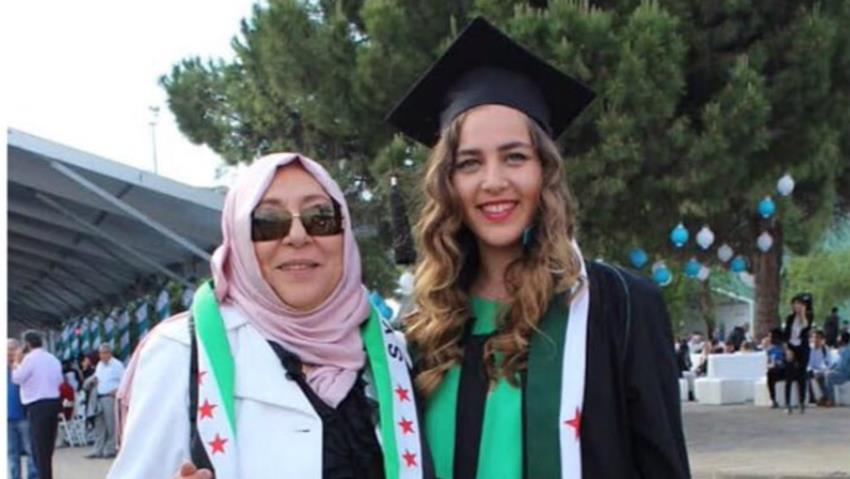
“Orouba moved to Istanbul to be with her sister Shaza, who at the time was working with Turkish charity IHH. Halla enrolled in a university in France but didn’t like it there, so a year later she also moved to Istanbul to be with her mother.
“Orouba was mainly surviving on the money she made from selling her business in Abu Dhabi. Halla however had a student visa because she enrolled at Istanbul Şehir University. Halla was working to help support the two of them. She was the main bread-winner of the family.
“She got a job at Okaliptus Medya, which at the time was being outsourced by TRT World. Like her mother, she too started to campaign against war crimes in Syria being carried out by the Assad regime. Both Halla and her mother were regularly receiving threats from supporters of the Assad regime.
“This is not confirmed, but there were rumours that Orouba was working on a story about extrajudicial killings taking place in a prison in Syria controlled by the Assad regime. We’re talking about a million people being executed without any kind of judicial process.
“This story has since come to light and there was a court case opened about it in Germany just last year, but in 2017 no one really knew about it. About a week before the murders, they received a phone call from a man speaking in a Tunisian accent telling them to keep their mouths shut or they’d be killed.”
Despite growing evidence that the murders of Halla and Ouroba merit new scrutiny, the Turkish authorities have rebuffed efforts for the case to be re-opened.
Ertan spells out the aspects of the disturbing case that merit further investigation, including that initially police suspected more than one person was involved in the murders.
“Halla’s distant relative Ahmed is the only one who has been convicted for the murders, but early reports suggested there was more than one killer and the investigation was initially leaning towards the incident being a crime carried out by multiple culprits.
“Police at the crime scene said they saw at least three sets of footprints. One of the footprints clearly belonged to a man with large feet. Ahmed has a small build, so it couldn’t have possibly belonged to him.
“No one believes Ahmed could have carried out these murders alone, although there is little doubt about him being involved. Those of us close to the case believe he was used to help the other culprits gain access to the apartment, and we believe he is still being manipulated to this day.
“Ahmed had no personal motive to commit the murders. Orouba was only ever good to him. When Ahmed was living in Syria, Orouba would regularly send money to help his family who were struggling to make ends meet.
“When he turned up in Istanbul in mid-2017, Orouba immediately found him a place to stay and hired him to work for a charity she founded. Ahmed only worked for her for 2-3 weeks before deciding to move to Bursa because he had found a new job there. They stayed in touch, and even phone records show that Ahmed had spoken to Orouba just three weeks before the crime was committed.
“After Ahmed was caught, he confessed to the crime and said he did it because Orouba owed him money, which is very difficult to believe. Even if she did owe him money, the amount surely could not have been significant enough to enrage so much that he’d commit murder.
Ahmed Barakat was convicted of the murder of his relatives Orouba and Halla Barakat, but doubts remain
#Istanbul : Ahmed Barakat was identified by security camera footage and apprehended for the grisly knife murder of Araba and Hala Barakat. pic.twitter.com/0yA8DKNHKd
— Christian Turner (@CombatChris1) September 30, 2017
“Ultimately, Orouba was one of Ahmed’s few sources of financial support in Turkey, so why would he want to kill her? If he was really desperate for cash, there were so many expensive things in the apartment he could have taken. Orouba owed tonnes of jewellery, yet he didn’t take any of it.
“Ahmed later retracted his confession and said that it was actually written by his interpreter who tricked him into signing it. Nonetheless we are certain Ahmed was involved one way or another, but he refuses to divulge any information about who was with him. Instead he just completely denies any involvement whatsoever. We believe he has been made the scapegoat and that the reason for him not cooperating is because he is being threatened.”
The murder Halla and Orouba, a year before the murder of Saudi journalist Jamal Khashoggi also in in Istanbul, brings up the question of the relative safety of foreign activists and journalists in Turkey.
Ertan, who spent nearly a decade in the city before returning in 2019, says, “This is a very relative question with no easy answer.” He explains that the dangers he perceived were mainly due to threats from abroad.
“From my experience, it is actually a lot safer being a foreign journalist in Turkey than a Turkish one. Foreign journalists who are registered as such tend to enjoy a certain level of diplomatic protection.
“Although the Turkish authorities might at times make it difficult for them to do their job, so long as all they are doing is their job as a journalist, they shouldn’t face any problems, not from the Turkish authorities anyway.
“However, as we have witnessed in recent years, foreign journalists and activists who move to Turkey to escape persecution in their own countries can often be easy targets for foreign agents who operate in Turkey.
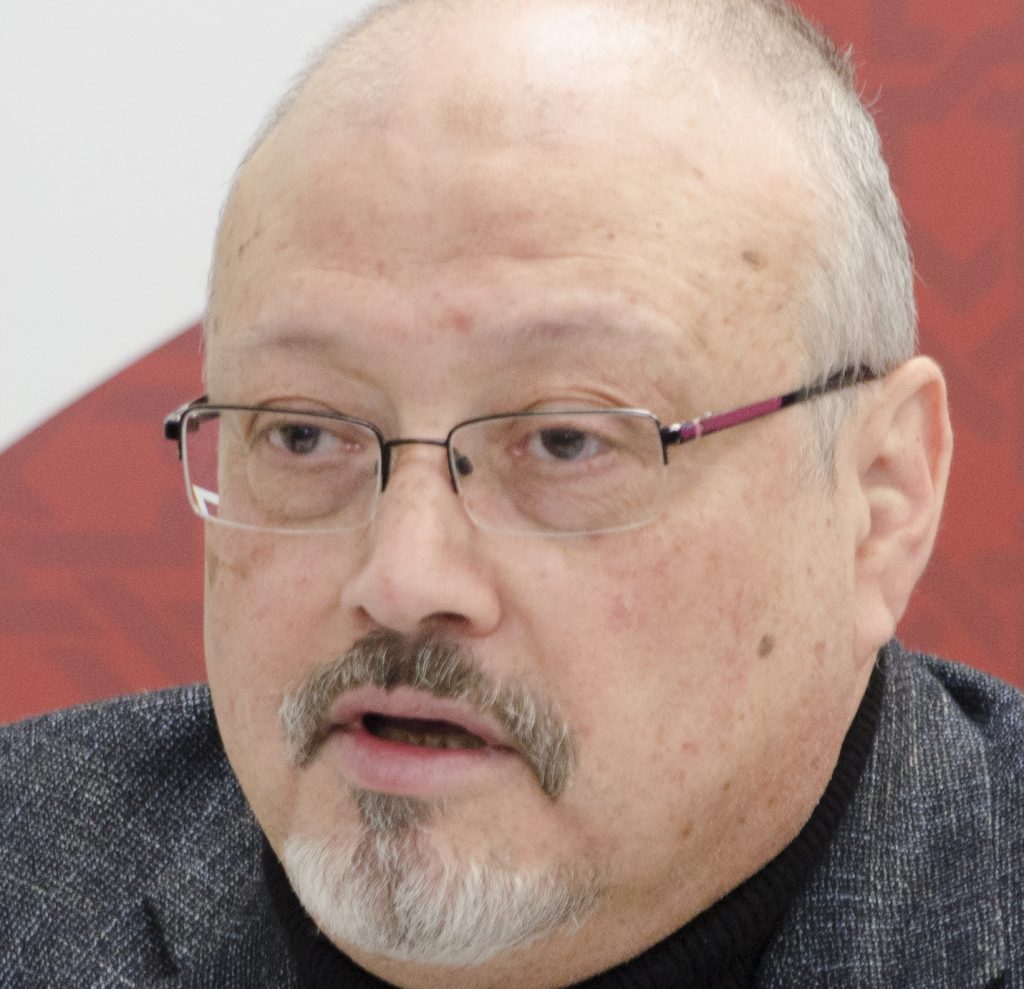
“Jamal Khashoggi is just one example. Iranian, Chechen, Uzbek, Tajik, Syrian and Uyghur diasporas living in Istanbul are also regularly harassed by agents from their own country.
“Turkey definitely needs to do more to protect foreign activists and journalists from international conspiracies,” adds Ertan.
He believes that Halla being an US national was a major reason her death attracted international attention, while so the killings of other foreigners at the hands of other foreigners in Turkey are routinely ignored.
“It hurts me to say this, but I think the only reason why Halla’s story got this much attention was because she was an American citizen. I think at the beginning of the case there was more emphasis on her being a Syrian, so for that reason the case may have been overlooked.
“If there was more emphasis on her being American, perhaps she wouldn’t have been brushed off as “just another dead Syrian”.”
It’s not just the Turkish authorities who have come up short with their investigation into Halla and Orouba’s untimely deaths. Ertan also points the finger at the US for failing to follow up on the murder case and push Turkey further.
“To be honest, Halla’s American nationality was the main angle that was taken in the ABC News and Reveal documentaries in order to get people to actually care about the story. Even then it hasn’t been good enough, because the American government itself didn’t do enough to stand up for its own citizen.
“It left that job to a small team of journalists, who mainly got involved because they knew Halla personally, because she interned at ABC News in New York in 2016. She had also appeared in an ABC News documentary with her mother in 2016, ironically to discuss the death of their friend, American aid worker Kayla Mueller, who was killed in Syria in 2015. If we had left it to the US government, we wouldn’t have even got this far.”
Photojournalist Esra Hacioğlu tweets in remembrance of Syrian activists Orouba & Hally Barakat on 3rd anniversary of the murder in Istanbul
Suriyelilerin sesini tüm dünyaya duyurmaya çalışan Suriyeli aktivist Orouba Barakat ve 22 yaşındaki gazeteci kızı Halla Barakat, 3 yıl önce bugün Üsküdar’daki evlerinde öldürülmüştü.
Allah rahmet eylesin. pic.twitter.com/cF776bB60w
— Esra Hacioğlu (@Hacikizi) September 22, 2020
Ertan and those committed to finding out the truth behind Halla and Orouba’s deaths refuse to give up, although he admits persuading the Turkish authorities to take another look at the case is not easy.
“I am regularly updated on developments regarding the case. The [ABC News] documentary gave us an extra weapon to use against the US government to pressure Turkey into reopening the case.
“Unfortunately, I don’t think that is going to happen unless some credible new evidence emerges. However, the documentary has brought about a few tip-offs. I don’t have all the details regarding this, and I am not at liberty to speak about the few details I do know, but I can say that this is far from over.”
The prospect of not ever completely knowing who was behind the murders weighs deeply on Ertan, but he also feels it’s important that the lives of the two women are not reduced to headlines about the brutal deaths they met.
“It breaks my heart knowing that there may be other culprits still at large, and there are people out there covering for them, but I’ve come to terms with the sad reality that they may never be brought to justice.
“Halla Barakat and her mother are by far the most amazing people I’ve ever met in my life. I entered this case as a sincere friend who just wanted to honour Halla and Orouba by giving them the legacy they deserve, as two women who lived and died for freedom and justice.”
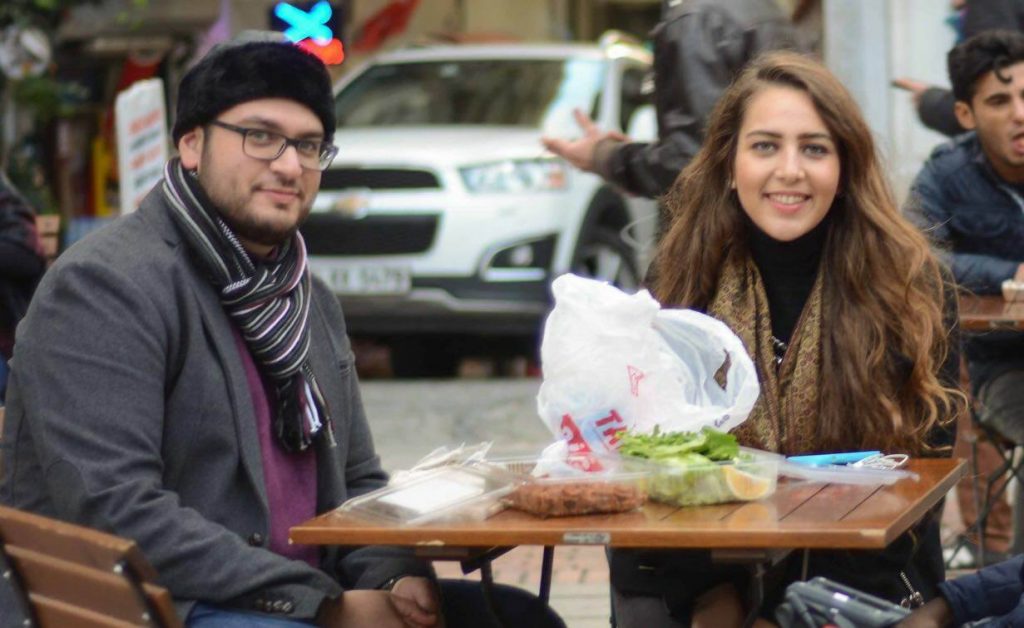
“They were never just a headline story to be in the newspapers one day and forgotten the next, randomly killed in some kind of domestic violence incident. Their lives had meaning, and all the people they sacrificed their lives for deserve to know who they were and what they stood for.
“That was the least I could do for them as a friend, and knowing Halla as well as I did, I have no doubt she would have done the same for me.”
Ertan stresses the significance of the loss of Halla not just as a friend, but as someone who showed solidarity with the struggle of Turkish Cypriots, who remain internationally isolated for refusing to give up their political rights in Cyprus.
“Halla was a keen supporter of the Turkish Cypriot cause and she saw how the struggle of Syrians to be free in Syria and how the struggle of Turks to be free in Cyprus were interlinked. We bonded over our shared cultures, cuisines and customs.
“Halla once invited me to be a guest on her show on Orient TV to talk about the Turkish Cypriot struggle, and her mother would invite me over to their home to eat molehiya– a [green leaf] dish Turkish Cypriots and Syrians have in common.
“Whenever I travelled to Cyprus, they’d always ask me to bring back some babutsa[prickly pear] from my village because it reminded them of their homeland.
“I believe if Halla had lived into her late adulthood, she would have been very important to Turkish Cypriot international lobbying efforts. Her death has been as much of a loss for the Turkish Cypriots as it has been for the Syrian people.”


